Hi, my name is Samson, and I am the Green Bean Coordinator at Pablo & Rusty’s. I also serve as an international judge for the Cup of Excellence. I had the honour of being one of the 24 judges selected for the Thailand COE 2024.
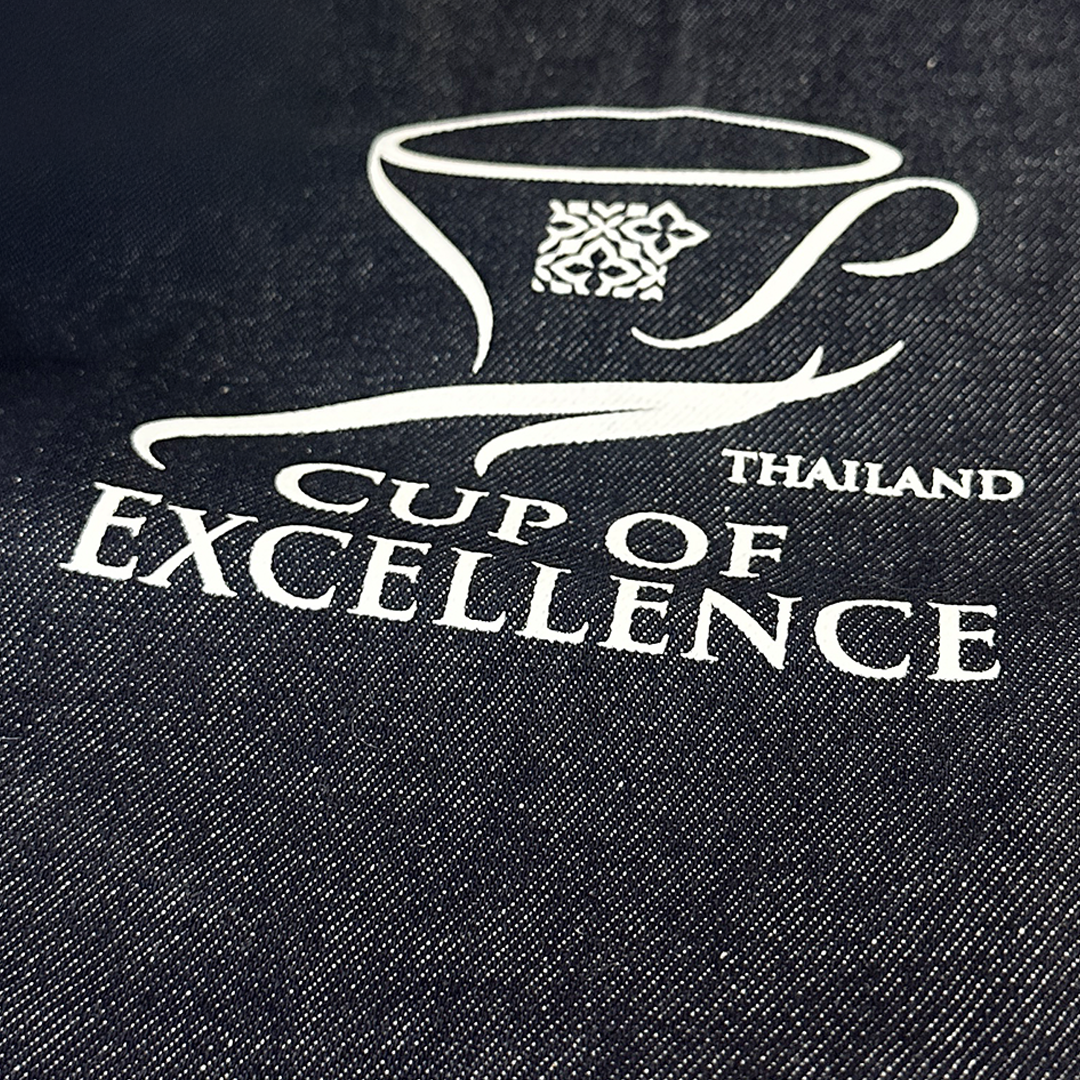
What is COE
For more than 20 years, the Cup of Excellence (COE) competition has set the standard for integrity and transparency in the coffee industry. No other competition puts coffees through the same rigorous evaluation, which ensures COE coffees consistently represent the highest quality. By recognising farmers' efforts and offering financial rewards, COE equips them with the tools to enhance their farm's economic model and succeed.
The COE competition aims to select and discover coffee samples that meet high standards, showcasing what is possible to produce and placing these exemplary coffees into the hands of roasters who can market them at a premium while rewarding farmers and industry partners for their efforts in creating these unique lots.
The COE competition normally takes place at the origin so that international participants can directly experience the unique flavour profiles of the coffee, build relationships with the country’s coffee industry and its members, from farmers to exporters and develop or share skills with local coffee professionals.
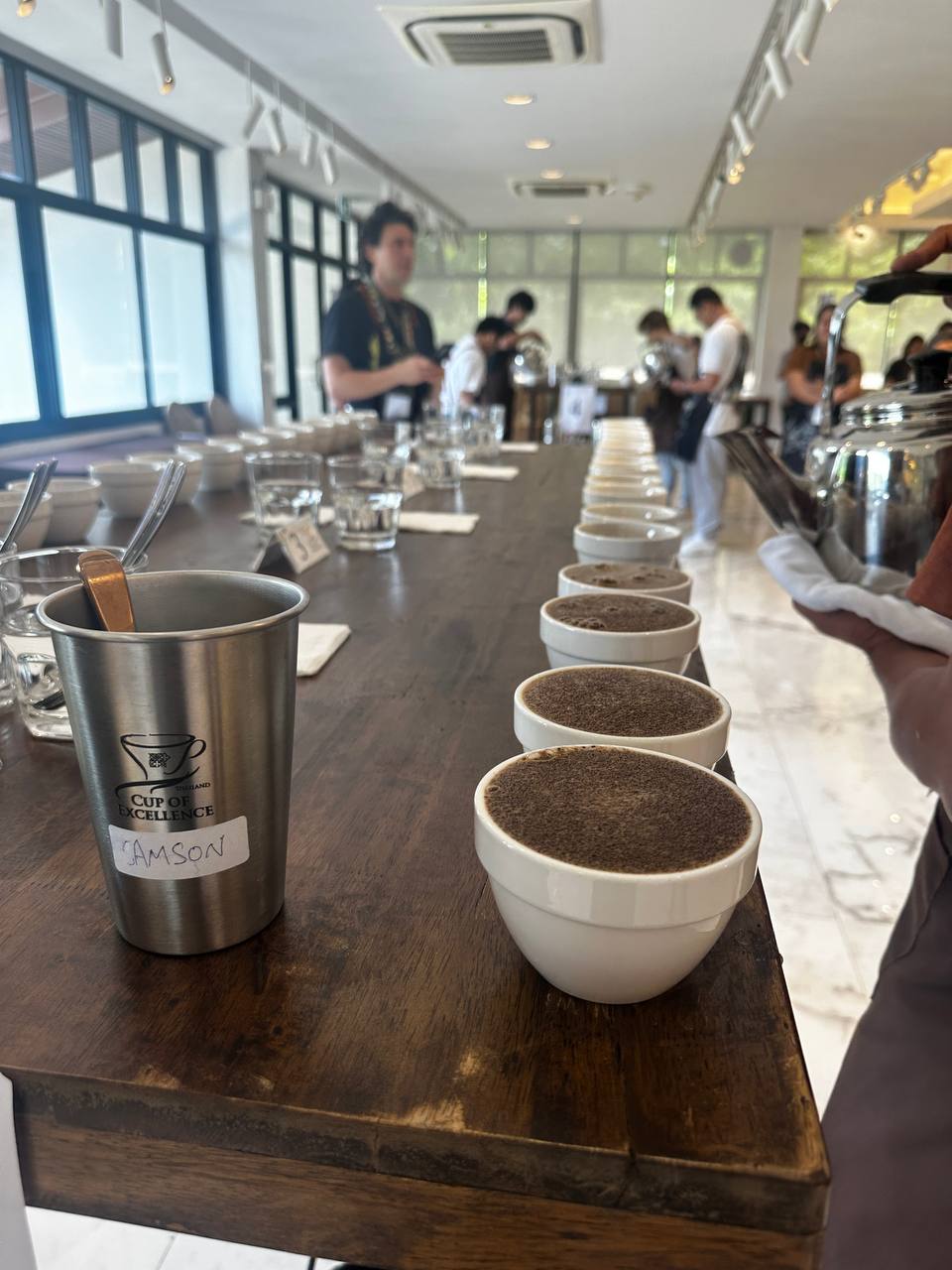
What is on the cupping table?
Before the international judges arrive, a team of top local cuppers (i.e. professionals who can scope the cup quality of a coffee) carefully pre-select the best 40 coffees from an initial 260 samples for the COE competition. Upon arrival, we kick off with a calibration session, where we cup samples chosen by the head judge to harmonise our palates with Thailand’s coffee profiles. Over the next two days, we cup and score the top 40 coffees, with each coffee being evaluated at least eight times by the entire panel. On the final day, we re-cup the top 10 coffees, scoring them again to decide the winning lots.
The winning lots are the top 30 coffees that scored above 87 points (out of a maximum 100) by the Cup of Excellence International Jury.
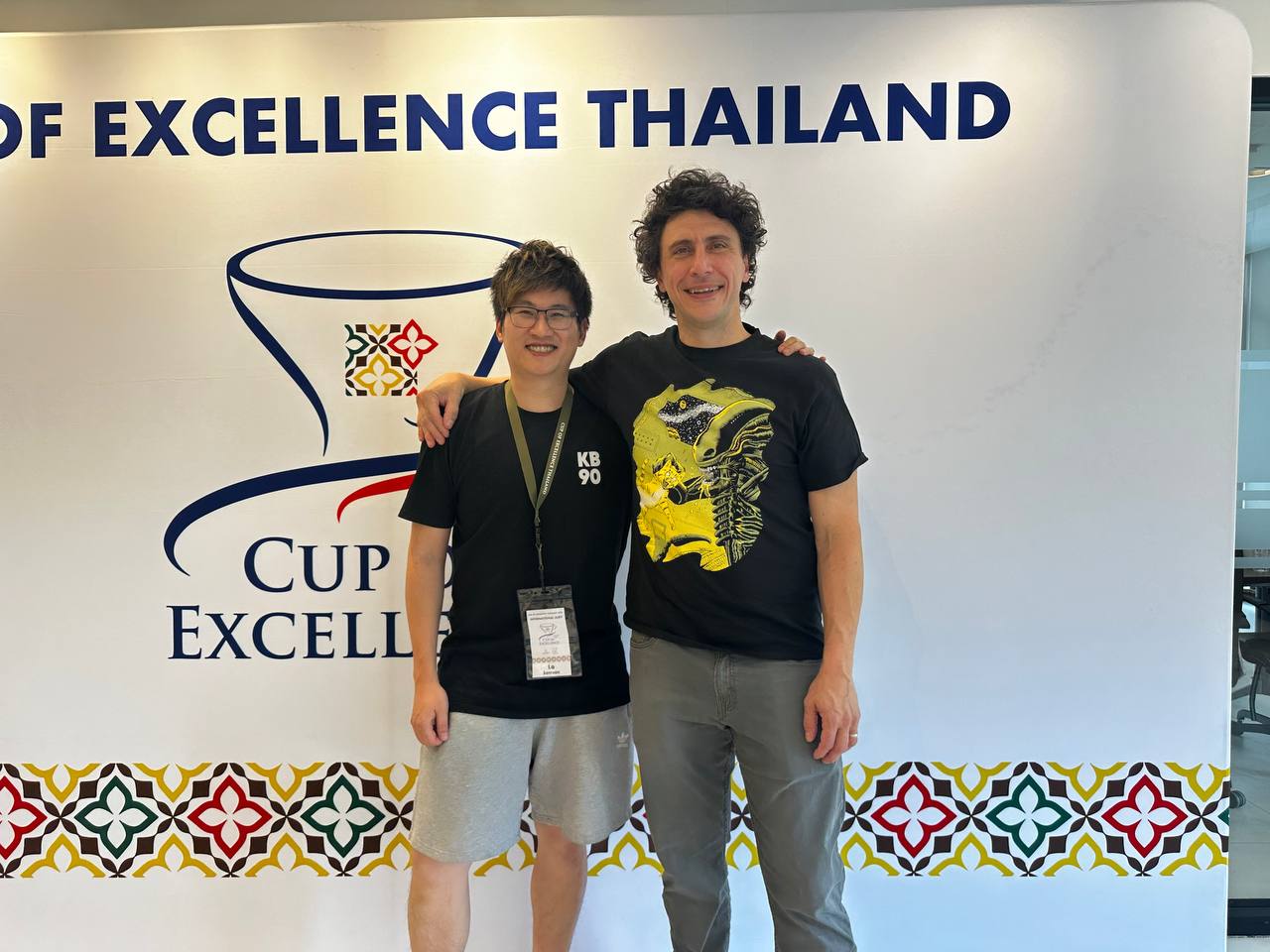
History of Thai coffee
The coffee-producing provinces of Chiang Mai and Chiang Rai, located in the lush hills of far Northern Thailand, have traditionally been home to various hill tribe communities. For a significant part of the 20th century, opium poppies served as the main cash crop in this region, similar to neighbouring Northern Vietnam, Laos and Myanmar. This area was famously known as "The Golden Triangle," becoming a global powerhouse for heroin and opiate production. The illicit trade resulted in countless social and environmental issues, particularly affecting the ethnic minority groups who called it home.
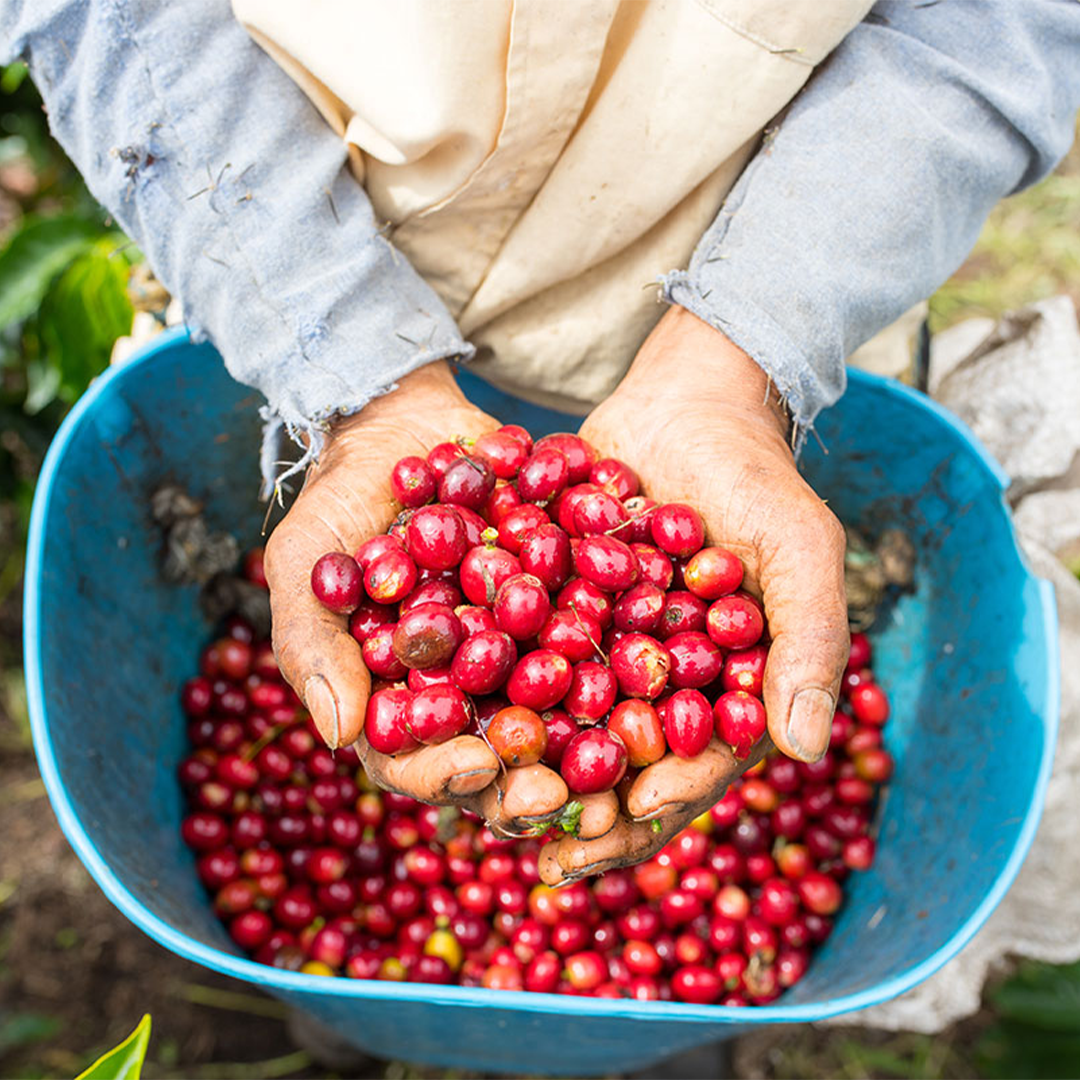
Fortunately, in the late 1970s, the then King of Thailand recognised these pressing issues and launched the "Royal Project." This initiative aimed to reforest northern Thailand and introduce new agricultural crops, including coffee. Many of the highly regarded heirloom Arabica varieties, such as Typica and Bourbon, planted under this royal initiative can still be found today. Over the decades, the Royal Project has gained international acclaim for its success in alleviating poverty and creating positive social and environmental impacts.
In recent years, the Thai coffee industry has experienced significant growth, driven by advancements in farming techniques, increased investment in infrastructure and a rising demand for specialty coffee both domestically and internationally. Today, Thailand is recognised for producing high-quality Arabica coffee beans, with renowned coffee-growing regions such as Doi Chang, Doi Tung and Khun Chang Khian gaining accolades for their exceptional beans.
Future of Thailand coffee
The future of the coffee industry in Thailand looks exceptionally promising, driven by several key factors. Rising coffee consumption is evident among younger generations who are eager to explore and experiment with various coffee types and brewing methods. This trend is reshaping the market and contributing to its growth.
Over the past decade, a young and highly educated generation of farmers has returned from the cities with fresh perspectives committed to producing some of Asia’s finest coffees sustainably. These farmers have focused on upskilling, investing in high-quality processing equipment and learning from global experts to elevate their beans to the next level.
This new generation of Thai coffee farmers maintains a strong connection with the modern world, utilising specialty brew knowledge, branding awareness and social media to uplift the entire industry. This dynamic integration of tradition and modernity is unique in the global context of coffee-producing countries.
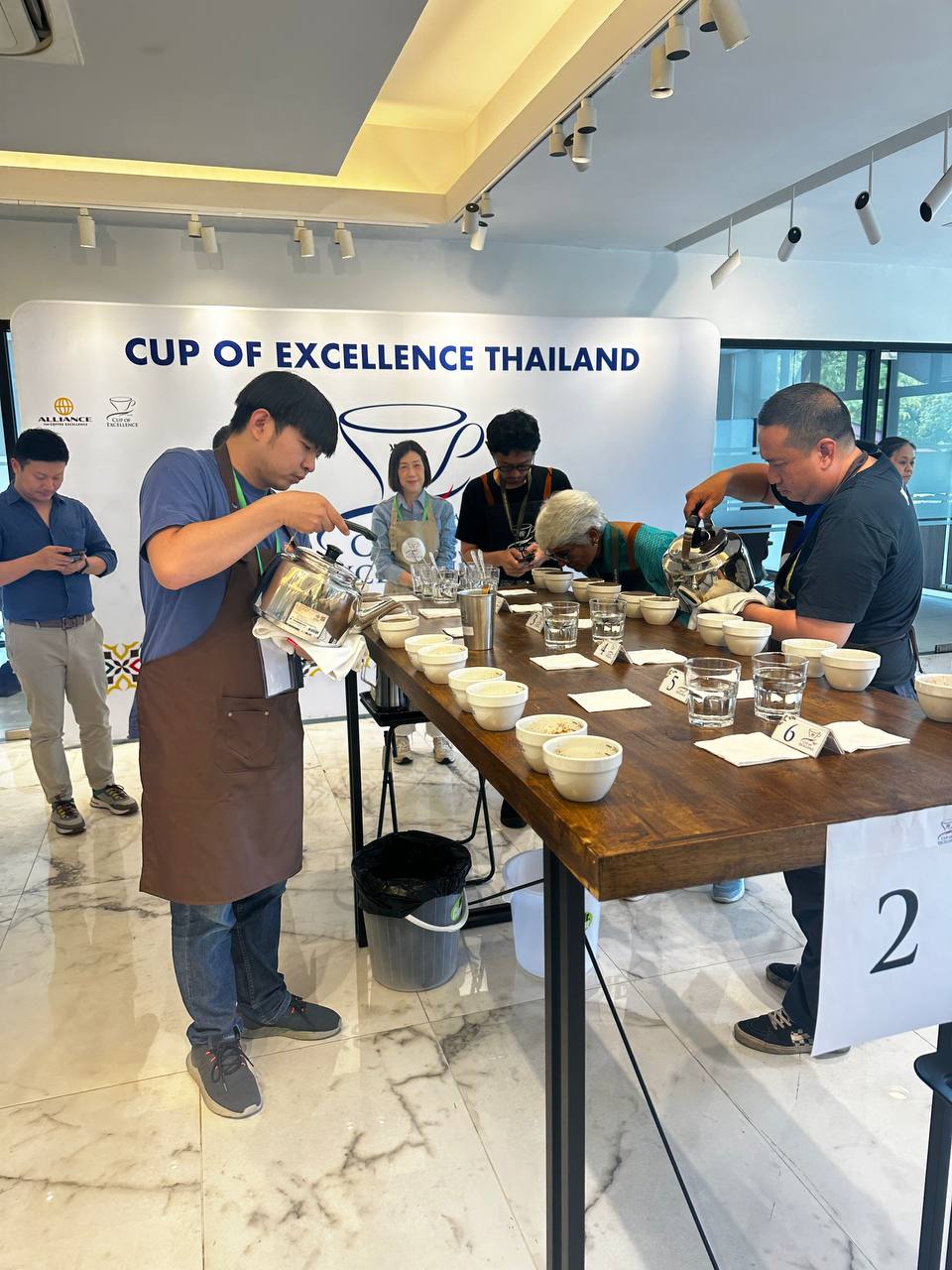
Additionally, increasing income levels and the emergence of a growing middle class have provided consumers with greater spending power. As a result, people are more willing to indulge in coffee, no longer needing to prioritise other expenses. This shift further fuels the market's potential.
Moreover, the continuous expansion of coffee businesses across Thailand reflects growing confidence in the industry. Entrepreneurs are investing in cafes, roasteries, and specialty coffee brands, all of which contribute to a vibrant coffee culture and reinforce Thailand’s position as a noteworthy player in the global coffee market.
With these driving forces, the future of coffee in Thailand promises a rich tapestry of flavours, innovations and sustainable practices that will shape the industry for years to come.
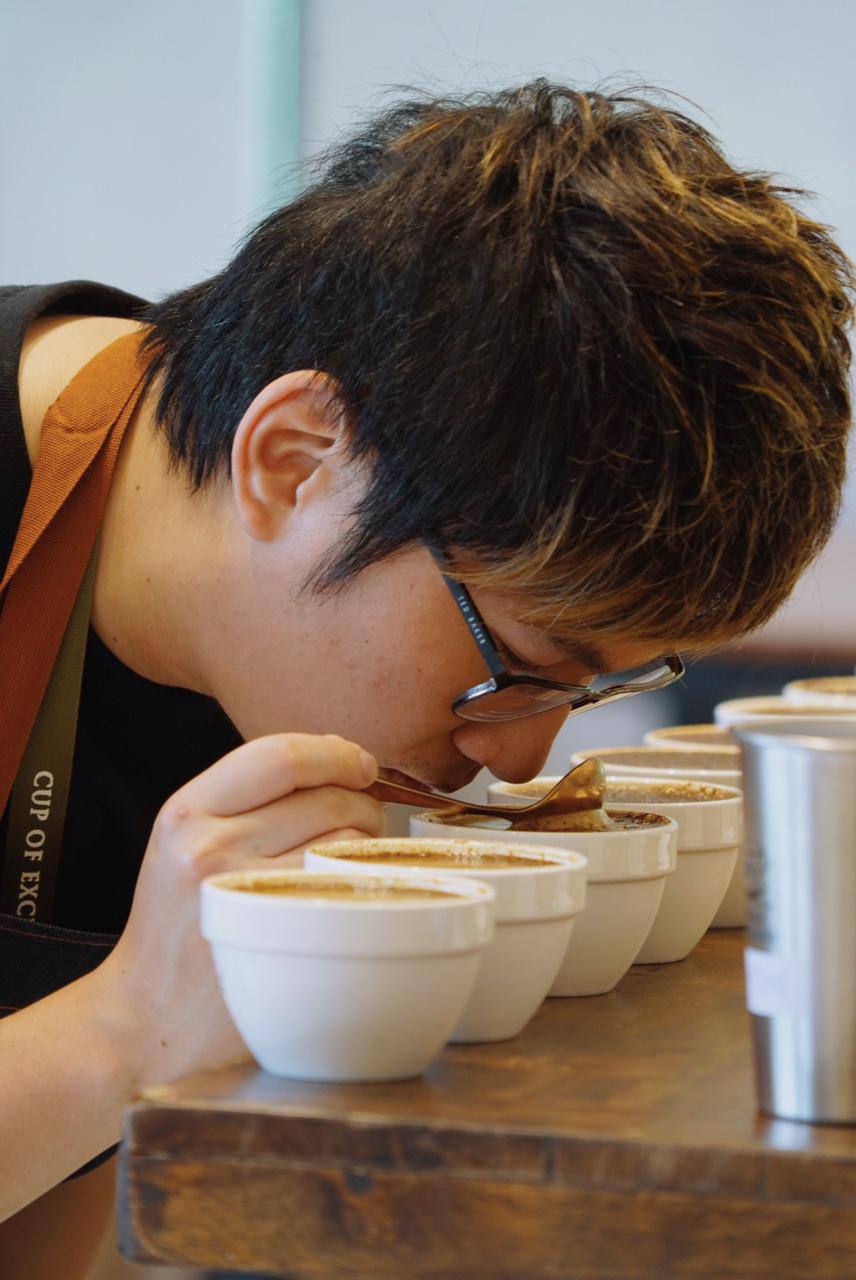
Being a part of the Cup of Excellence was truly an unforgettable experience. It was an honour to taste and evaluate some of the best coffees in Thailand while playing a small part in promoting and rewarding the hardworking coffee farmers. I am especially grateful to have participated in the Cup of Excellence in Thailand this year, where I witnessed the remarkable diversity among the coffee-producing regions, the prevalence of natural shade on farms and the dedicated efforts of coffee producers in enhancing harvest selection, processing and storage techniques. These collective endeavours have yielded distinctive flavour profiles that can now be recognised and appreciated through this exceptional program.

-v1729205026094.JPG)


